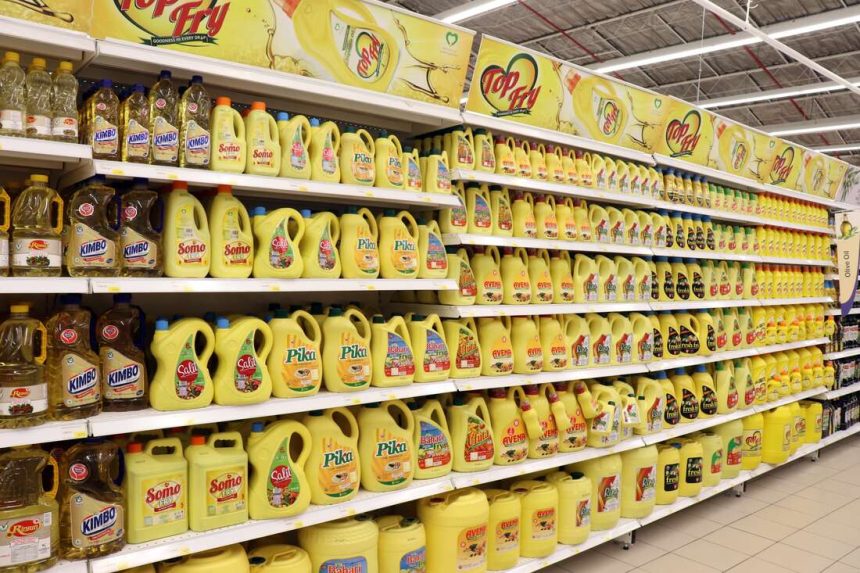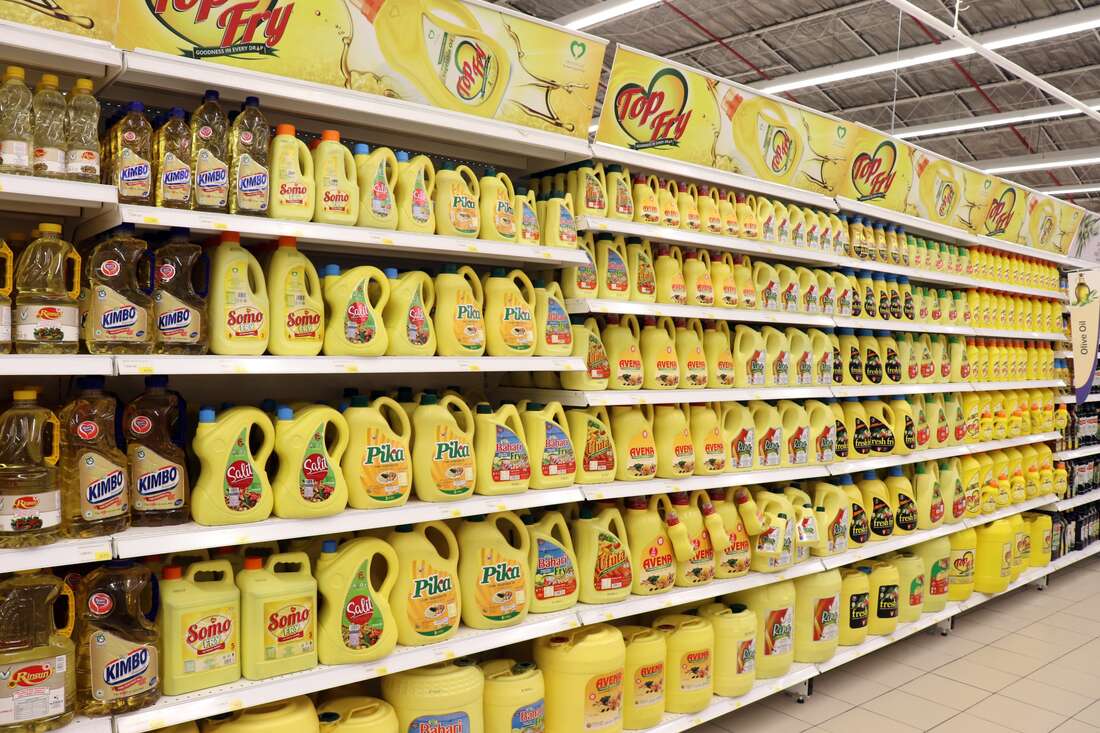Kenyans could pay more for cooking oil if the government goes ahead with plans to impose a 10 per cent duty on imported crude palm oil shipped into the country for refining.
Trade Cabinet Secretary Moses Kuria has stepped up the war against unnamed individuals in the cooking oil trade, whom he describes as cartels, by proposing higher taxes on crude palm imported by local producers.
The CS has proposed a 10 per cent Export and Investment Promotion Levy on crude oil imports, which will be passed on to consumers by manufacturers.
The Finance Bill, 2023 has proposed to impose the cess on goods imported into the country for domestic use at the rate of 10 per cent of the customs value of the goods under the Third Schedule.
These goods include bars and rods of iron, kraft paper, sacks and bags and cement clinkers, with CS Kuria now seeking to add edible oil to the list. In a blow to the local cooking oil refining industry, Mr Kuria has proposed that the import duty on refined cooking oil be reduced from 35 per cent to 10 per cent.
This means that local cooking oil manufacturers and traders who import the refined product will pay the same 10 per cent duty, which will encourage manufacturers to abandon refining in favour of importing the finished product.
The CS’s proposal sets him on a collision course with the Kenya Association of Manufacturers (KAM), which vehemently opposed the government’s duty-free import deal.
Duty-free cooking oil
The government this year mandated the Kenya National Trading Corporation (KNTC) to import 125,000 tonnes of refined cooking oil duty-free, claiming the move would bring down prices.
In February, producers argued that the government’s move threatened the industry, which generates more than Sh52 billion a year in taxes for the government.
The edible oil sector also employs 10,000 people directly and over 30,000 indirectly throughout the value chain, they said.
“Why doesn’t the government consider incentivising manufacturers through reduced taxes and lower power costs to bring down the overall cost of production which will subsequently bring down the cost of finished goods to the desired level?” they posed.
Mr Kuria told Nation the introduction of the levy will create a level playing field for both importers of crude palm and traders who import refined oil.
However, the CS failed to acknowledge the impact this will have on cooking oil prices, as most of the product sold in the country is produced by local manufacturers who will now have to raise prices if the levy becomes a reality.
“I don’t want to do anyone any favours,” the CS said in reference to local cooking oil producers, “we have everything we need to grow palm in this country. If we start planting palm now, we will start harvesting in about four or five years,” he told Nation yesterday.
Taking to his official Twitter handle yesterday, the CS continued his fight against the manufacturers, who have been the main target of his ire since he took office in October last year.
“We continue to lag behind our neighbours because we were held hostage by the oil cartels, we have since decided to take the bull by the horns,” he tweeted.
The government has been quick to point to relatively lower cooking oil prices at the shop compared to a similar period last year as evidence that its duty-free oil import deal is bearing fruit.
However, lower cooking oil prices on supermarket shelves are influenced by lower global crude palm oil prices, which have allowed local producers and traders to pass on the lower cost benefit to consumers.
For example, a tonne of crude palm was trading at 3626 Malaysian ringgit (MYR) (Sh109,505) yesterday, down seven per cent from MYR3913 (Sh118,172) on September 13 last year when President William Ruto took office. Indonesia and Malaysia account for about 85 per cent of the world’s crude palm oil supply.
While edible oil prices have dropped slightly in recent months, a spot check by Nation on the online shopping platform Naivas indicated that prices remain high, with some brands selling the commodity at Sh297 per litre, while others were selling the same quantity at Sh459.




